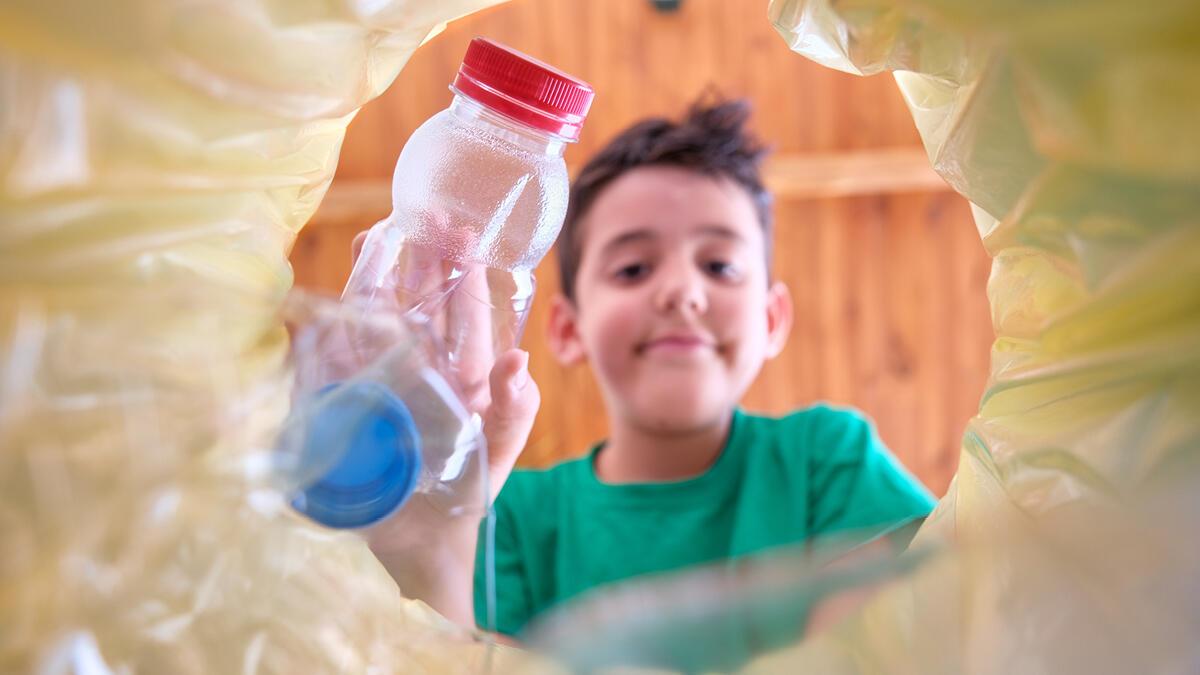Anti-plastic rhetoric has been a hot topic for a while, with some proclaiming the solution to plastic waste is to completely get rid of it, full stop. However, it is important to step back and ask if that approach truly takes us in the right direction - and if it is realistic.
Polystyrene – the most misunderstood plastic
Contrary to popular belief, certain plastics, such as polystyrene, are the most versatile, lightweight material in the market and - perhaps surprisingly - the most sustainable. With plastic being irreplaceable in medical and food-grade packaging, the solution is to invest in our outdated and insufficient recycling infrastructure and institute policy, which enables resin producers to bring necessary advanced recycling technology to scale.
Polystyrene is likely the most misunderstood plastic. The myth that this material cannot be recovered and therefore needs to be banned entirely is not only misguided but also potentially dangerous. In fact, polystyrene has many inherently sustainable properties, which enable it to play a substantial role in designing products for recycling or sustainability.
Polystyrene is an energy-saving material
As opposed to other polymers, polystyrene’s material strength and barrier properties often allow it to be used as a single layer in applications such as food packaging. This single layer design means the elimination of multiple material layers that cannot be adequately separated during the recycling process. It also often means less material overall is used to create each package in the first place. Take a polystyrene foam coffee cup for instance, the cup is composed of over 98% air! Its leading insulation abilities even eliminate the need for those wasteful cup sleeves. Plus, the material’s lightweight properties make it lighter to transport, reducing the amount of emissions released. Therefore, eliminating polystyrene could result in less material recycled or higher carbon emissions.
Polystyrene is perfect for recycling
Another misconception about polystyrene is its recyclability – polystyrene is recyclable! In fact, polystyrene material can be sorted and recycled more easily than many other polymers. Its simple molecular properties hone unique signaling capabilities that allow for easy and extremely precise sorting which ensures high quality, valuable recycled material. Once sorted, polystyrene can be recycled using at least five different types of recycling technologies! Advanced recycling options such as depolymerization enable polystyrene to be fully circular. Many industry leaders, including INEOS Styrolution, are working alongside leading recycling technology providers to create a circular economy for polystyrene.
Polystyrene is a hygienic, non-toxic material
Unfounded rhetoric occasionally emerges, attempting to label polystyrene as toxic. In fact, polystyrene is a stable polymer, which is chemically different from its raw material, styrene monomer, and it is not toxic. However, it may surprise you to know that styrene does occur naturally and is found in many common foods such as strawberries, cinnamon, and beer! The U.S. Food and Drug Administration (FDA) regulates the safety of food-contact packaging and for more than 50 years, the U.S. Food and Drug Administration have approved the use of polystyrene for foodservice products. Polystyrene products provide hygienic methods to serve, transport, and store fresh foods to help prevent the spread of disease at schools, restaurants, hospitals and in people’s homes. Polystyrene is a high-quality FDA-approved packaging material, with a low carbon footprint and it requires less energy and water to produce than alternative materials, for example, glass, aluminum, paper, and compostable plastic alternatives.
BANNING plasticS is not the solution
Lastly, an increasingly common misconception is that there is a simple solution to the plastic waste issue. Some simply believe that eliminating so-called problematic materials sounds like a quick and easy win; however, these kneejerk and misguided policies really just further complicate the problem. In most cases, this simply shifts the issue to a new material, which has its own challenges. For instance, composting infrastructure is scarce in the U.S. and compostable plastic alternatives require industrial composting facilities in order to break down these materials. Even so, compostable plastic alternatives break down at a slower rate than food scraps and other conventionally composting materials, which causes issues for composters.
While some products may have the ability to be made using various types of plastics, plastics themselves are highly engineered materials, and some applications are simply unable to switch to another type of plastic. The original material is used in the design because it performs the function the best! The best solution is to develop end of life, circular solutions and innovate our way to a circular economy instead of restricting access to valuable materials. This topic requires public and private organizations to collaborate by pooling knowledge and resources in order to implement recycling innovations on a larger, national scale.
So much change and progress has been made to the design and technology of plastics themselves and their recyclability over the last decade. It’s time to change the conversation to catch up with today’s technology. Once we overcome the current challenge of getting over the stigma and vilification of plastics, our society will start benefiting from the many innovative recycling solutions- like those for polystyrene. It may seem like we have a long way to go to completely close the loop, but we have to start taking steps in the right direction to make a real difference. Plastic waste is a valuable raw resource. It is in the interest of all participants in the value chain from producers, consumers, and recyclers that plastic is recovered, recycled and repurposed again and again.
Learn more about high-purity mechanical recycling of polystyrene
Learn more about advanced recycling of polystyrene



